Cambodia’s tourism is rebounding post-pandemic, and an increase in direct flights and new international airports is making the Kingdom more accessible. This is opening new doors for new visitors and potentially retirees who enjoy the relatively peaceful and safe environment, the affordable cost of living and the ease of obtaining visas to stay long-term.
The Kingdom has long established itself as a pleasant and affordable destination for seniors to spend their golden years. We explain important points for aspiring expats seeking to retire in Cambodia by assessing your choice of visa, currencies & banking, healthcare, cost of living, transportation and where to live.
Retirement Visa in Cambodia
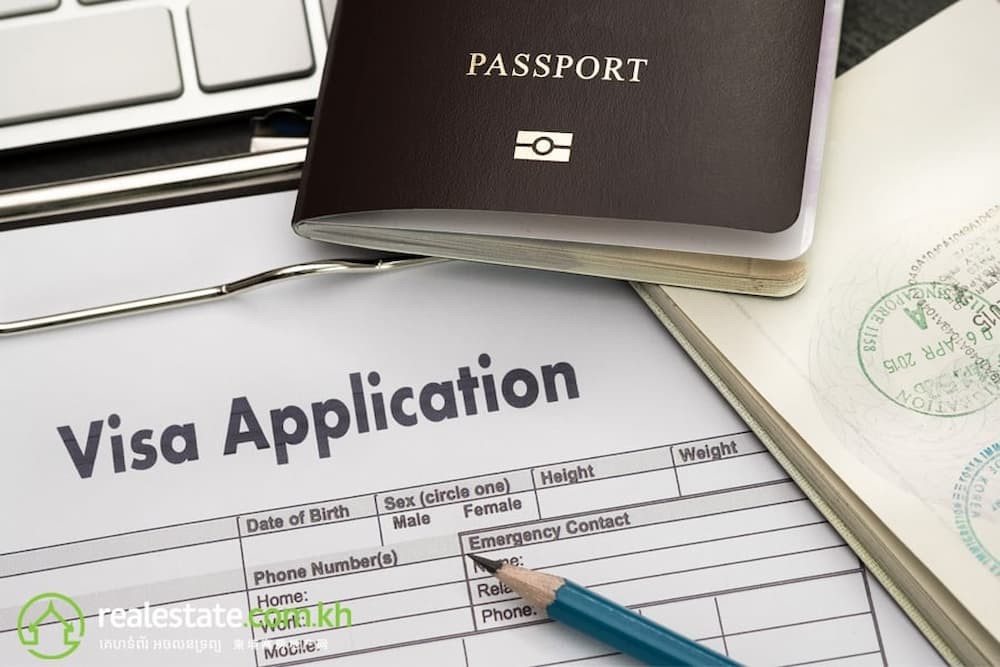
In terms of Cambodian visa options for retirees, it is quite straightforward to get an ER visa, which enables foreign citizens over the age of 55 to be eligible for visas lasting up to a maximum of 12 months, which can be renewed on an annual basis.
To get a retirement visa to Cambodia, it is necessary to apply for a regular visa first (E-class visa).
The application can be made through the Cambodian Embassy, consulate in your home country or via the online visa portal. Once entering Cambodia, it is necessary to extend the visa to a retirement visa (ER) via a visa agency, which will help in dealing with the application forms to the General Department of Immigration (GDI).
The following documents are required to complete the application:
- A passport with at least 6 months of validity
- A blank page in the passport for the visa issuance
- A passport photo
- Proof of retirement or pension scheme
- Health certificate
- Criminal background check
As of the latest update, the cost for the ER visa is approximately $290-$300 for a year. After the visa duration is completed, it must be renewed or extended if one wants to continue living in the Kingdom. It is possible to renew or extend the visa for a duration of 1,3,6, or 12 months, but only visas 6 months or longer allow for multiple entry into the Kingdom.
We suggest reading the most up-to-date guide on Visas for Cambodia, which includes the ongoing digitalisation, e-forms and other changes you should be aware of.
Currencies & Banking in Cambodia
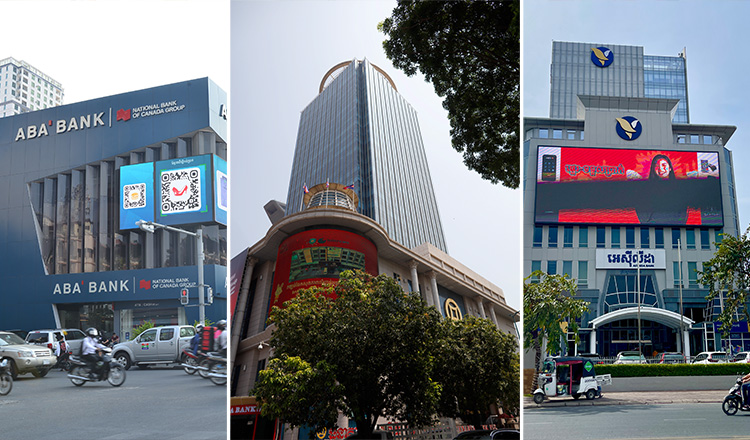
ABA Bank, Canadia, and ACLEDA are popular banks in Cambodia. (Source: Khmer Times)
Cambodia uses a dual currency system: the Cambodian riel (KHR) and the US dollar (USD). It's important to note that only US notes are used, not coins, and there are no riel coins. Both currencies are widely used for everyday transactions. However, it is preferable to use riel when purchasing items, as the change is likely to be favourable. The advent of cashless payments has also become prominent, especially in major cities such as Phnom Penh, so having a local bank account which allows for QR code transactions is highly recommended.
When it comes to banking, banks offer options to open accounts using riel or dollars as the default currency. Foreign retirees will also need to transfer their pension funds to a local bank or use a money remittance company. It is advised that you check with your respective country about pension payments abroad.
Fortunately, Cambodia has multiple choices for transferring funds overseas, and branches of Western Union, MoneyGram, and other money transfer companies, as well as most banks, offer these services.
Whilst the tax law does state that there is 20% tax on overseas income for tax residents, there is no personal tax system, and you won't be taxed on money you remit into Cambodia.
Delve into more information in our guide to banking for foreigners in Cambodia.
Cambodian Healthcare
An important aspect of living abroad as a foreign national, especially for retirees, is the healthcare system and its affordability.
Cambodia’s healthcare system has significantly improved over the last decade and continues to do so. There are several private clinics, and the public sector is continually developing its services and infrastructure, while regional partnerships between local healthcare centres and those in nearby countries have also risen
- The leading hospitals in Phnom Penh include Royal Phnom Penh Hospital, Calmette Hospital, and several clinics such as Intercare and Advance European Medicare Centre.
- Dental care is generally of a good standard and quite affordable in Cambodia. Prices for scaling start from $30, and single-tooth implants are around $1,000.
- Pharmacies are easily found in most parts of the city, offering affordable and accessible drugs and medicines.
Many retirees choose to purchase health insurance that covers them for medical treatment both in Cambodia and abroad. It's important to research and understand the healthcare options available and consider including medical expenses in your retirement budget.
The Royal Phnom Penh Hospital is regarded as one of the best hospitals in the country. (Source: Supplied)
Where to Live
When it comes to deciding where to live in Cambodia, the Kingdom offers a variety of landscapes to suit different lifestyle preferences.
For those who prefer city life, Phnom Penh is the ideal choice as most economic activities happen in the capital. The city continues to grow with new shopping malls and high-rise buildings, both residential and commercial. The infrastructure is also rapidly improving, and new transport hubs and accessibility mean the city is sprawling in new directions.
The Realestate.com.kh extensive report titled “Cambodia Investment and Market Analysis,” provides a comprehensive overview of Cambodia’s condominium market, reviews past market trends, and offers insights into future prospects as well as areas popular for renters and buyers.
Depending on the renter's budget and lifestyle preferences, renting a property in Phnom Penh can range from as low as $200 for a simple studio unit. Modern units in high-rises with a variety of amenities and services start from at least $700 in prime locations such as BKK1, and Tonle Bassac.
For a more laid-back lifestyle, Siem Reap is a preferred destination. It is notably popular due to its proximity to the Angkor Wat temple complex, the largest religious monument in the world. It is known to be a more tourist-driven city with an expat community, multiple entertainment options, and dining places that contribute to making the life of retirees pleasant while enjoying a jungle-like environment. It also has a new international airport, which opened in 2023.
Housing options in Siem Reap differ from Phnom Penh, with no high-rise developments but quality accommodations available throughout the town. Rental prices for studios can range from a minimum of $200, depending on the location.
Sihanoukville, Kampot, and Kep are also popular destinations for retirees.
In the last decade, Sihanoukville has seen significant development, especially with the construction of new buildings, infrastructure projects (ports and hubs) and other entertainment facilities. It offers a beach getaway to the islands of Koh Rong and Koh Rong Sanloem for those who enjoy the beach.
Kampot and Kep are known for their slow-paced lifestyle, with a community of expats and retirees enjoying their golden days in the countryside. They tend to be very affordable, improving accessibility and providing suitable healthcare and things to do.
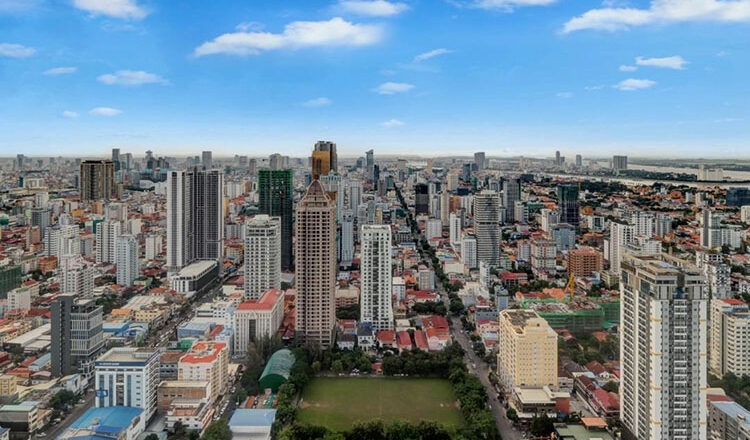
BKK1 district is a popular neighbourhood where expats choose to live in Phnom Penh. (Credit: Realestate.com.kh)
Transportation
Transportation in Cambodia is relatively affordable, with options including tuk-tuks, motorbikes, trains, and buses. Tuk-tuks are a popular mode of transportation for short distances within cities, while motorbikes are commonly used for longer trips or exploring the countryside.
Buses are available for intercity travel, with both short and long-distance routes. It is important to note that road safety and infrastructure in Cambodia may not be up to some developed country standards, and caution is advised when using transportation options.
The advent of technology, transport apps, and cashless payment has transformed the options and availability when booking transportation throughout Cambodia.
Find out more in our guide for travellers coming to Cambodia.
Cost of Living in Cambodia
Cambodia is known for its affordable cost of living, making it an attractive option for retirees on a budget. There has been an uptick in the cost of living as the country plans to move to an upper-middle-income economy by 2030 and a high-income country by 2050 as wages and education improve.
Foreigners can own property in Cambodia, and buying rather than renting might be a preferred option for retirees. You can find out more about all your Cambodian property costs here.
Expenses such as housing, utilities, transportation, food, and entertainment are generally lower compared to many developed countries and very competitive in the region. Monthly living costs can vary depending on your lifestyle and location, with Phnom Penh being relatively more expensive than other cities in Cambodia.
Below is an approximate average of the costs of living in Phnom Penh.
Expenses |
Average Costs Monthly ($) |
| Water | $5 onwards |
| Electricity | $50 onwards |
| Gas | $15 (depending on market price) |
| Food | $150-$300 |
| Transportation | $50-$150 |
Retiring in Cambodia has become a popular option for foreigners seeking to enjoy their retirement without compromising on quality. The ease of obtaining the Cambodia ER visa, improving healthcare facilities, affordable cost of living, the relatively easy means of communication and a large variety of housing options are just a few of the reasons why many choose Cambodia for their golden years.
If you are interested in learning more about properties in Cambodia, our real estate agents are ready to assist you. Contact us today.
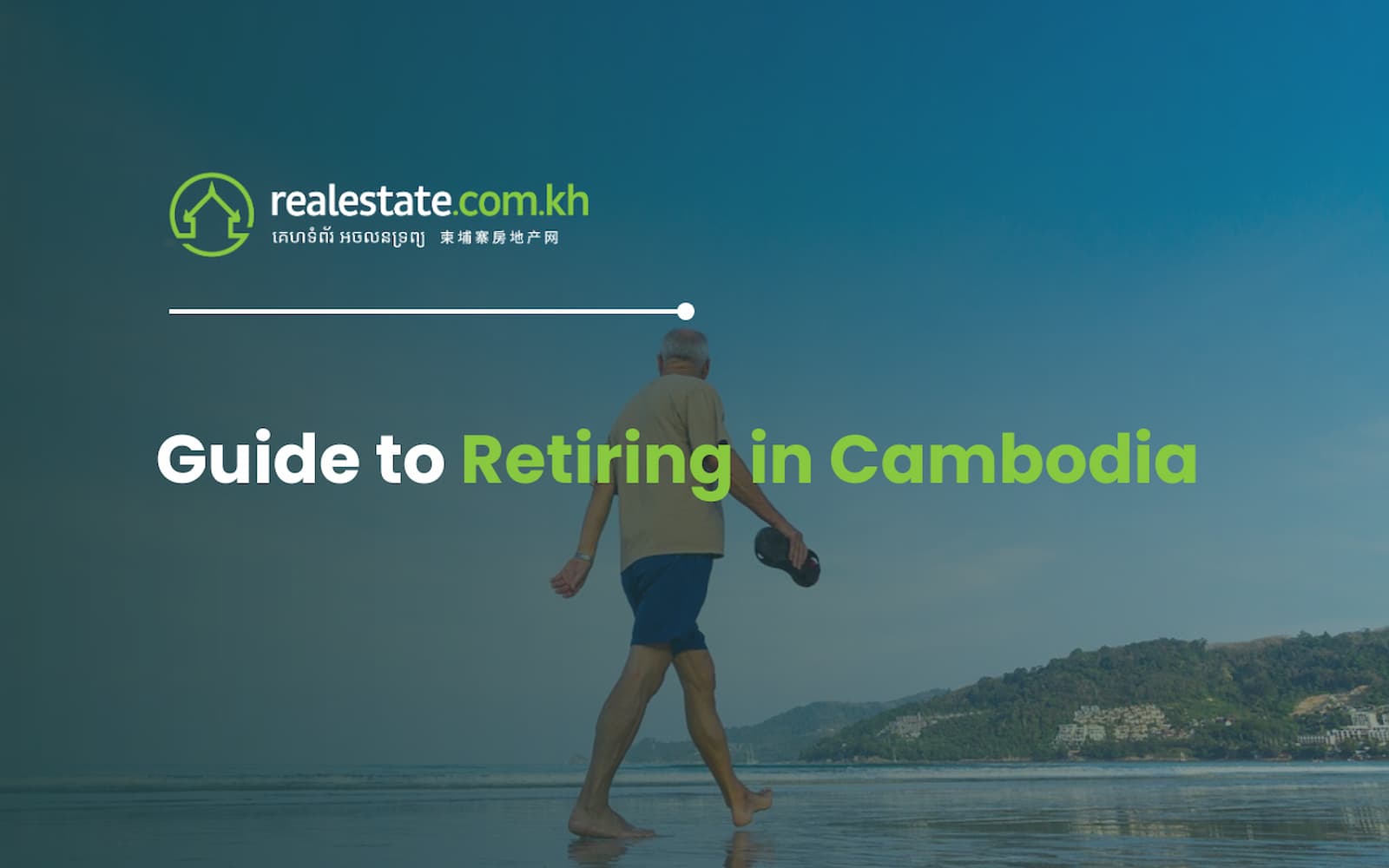
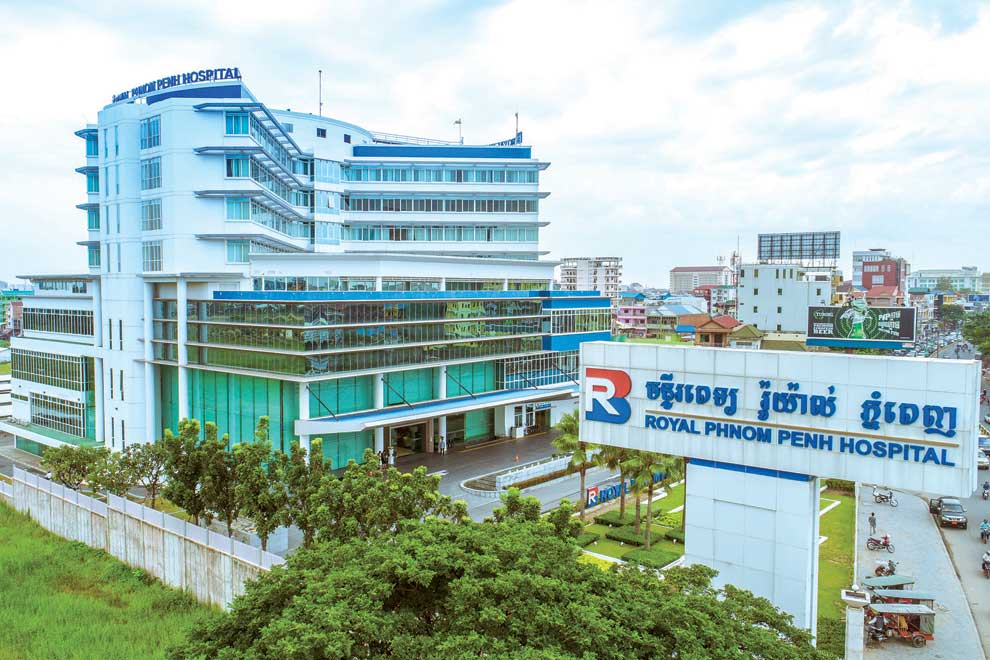
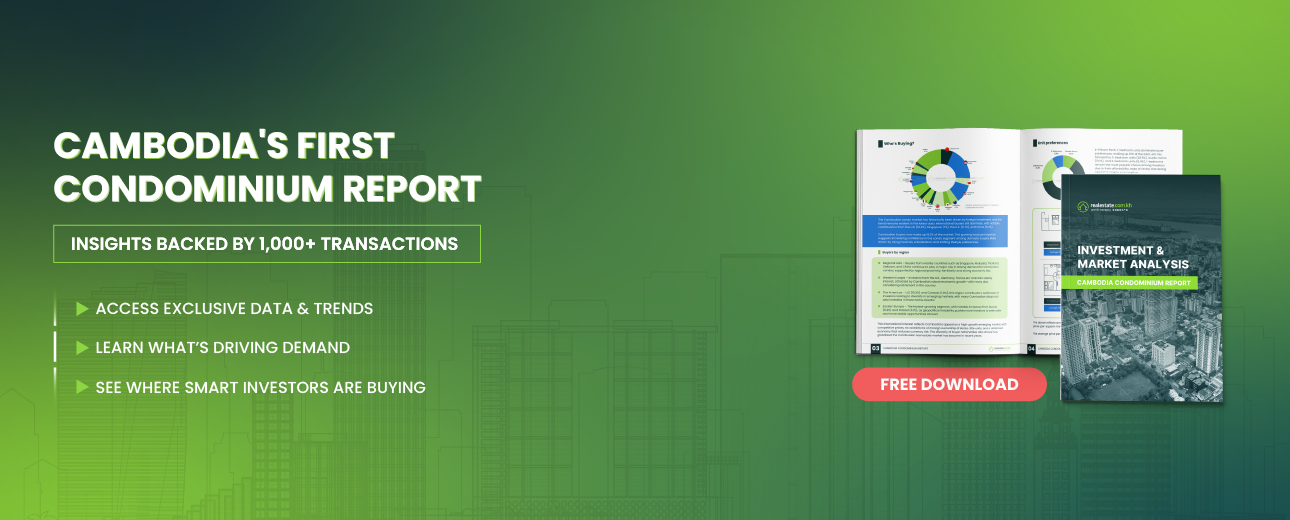
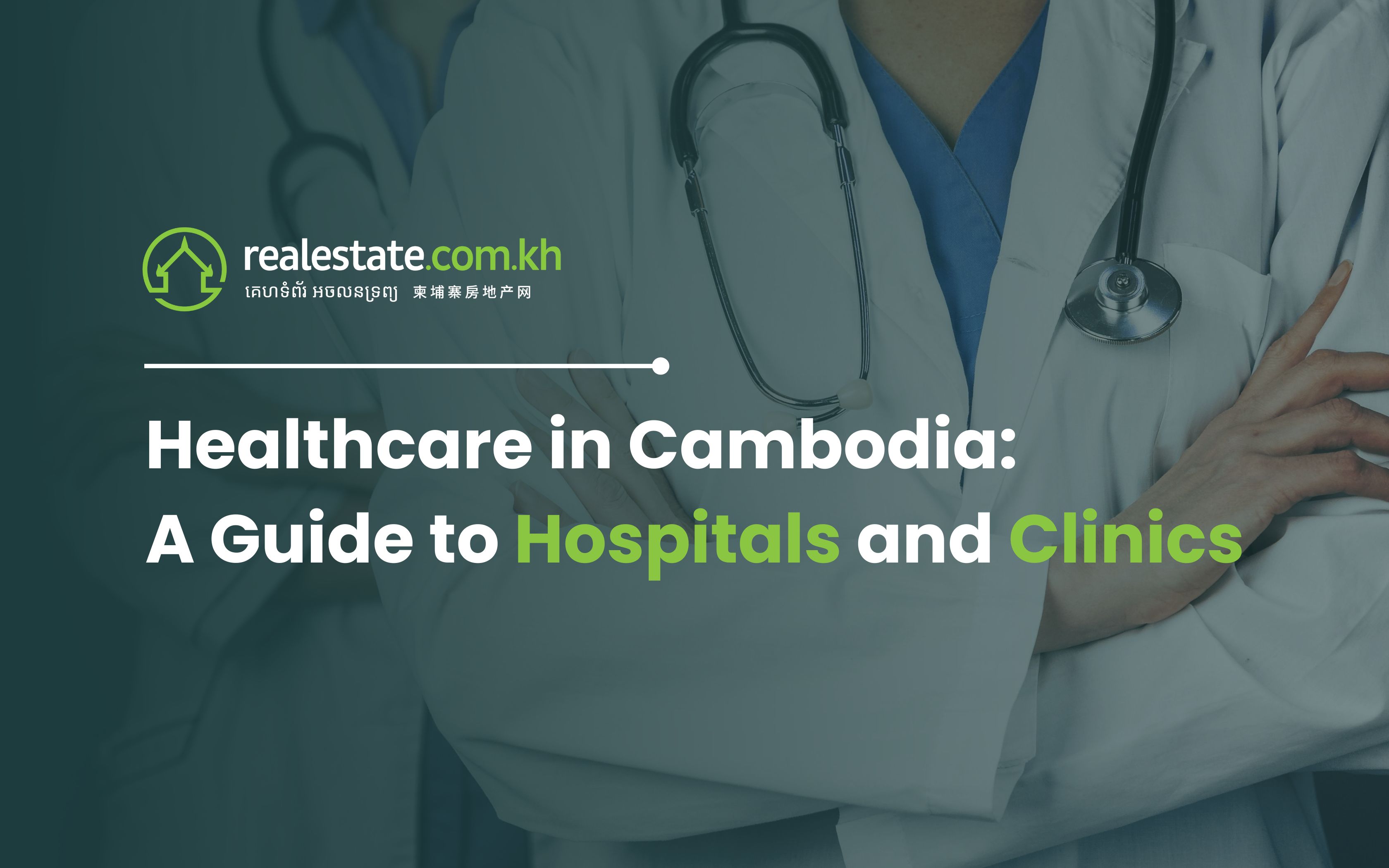

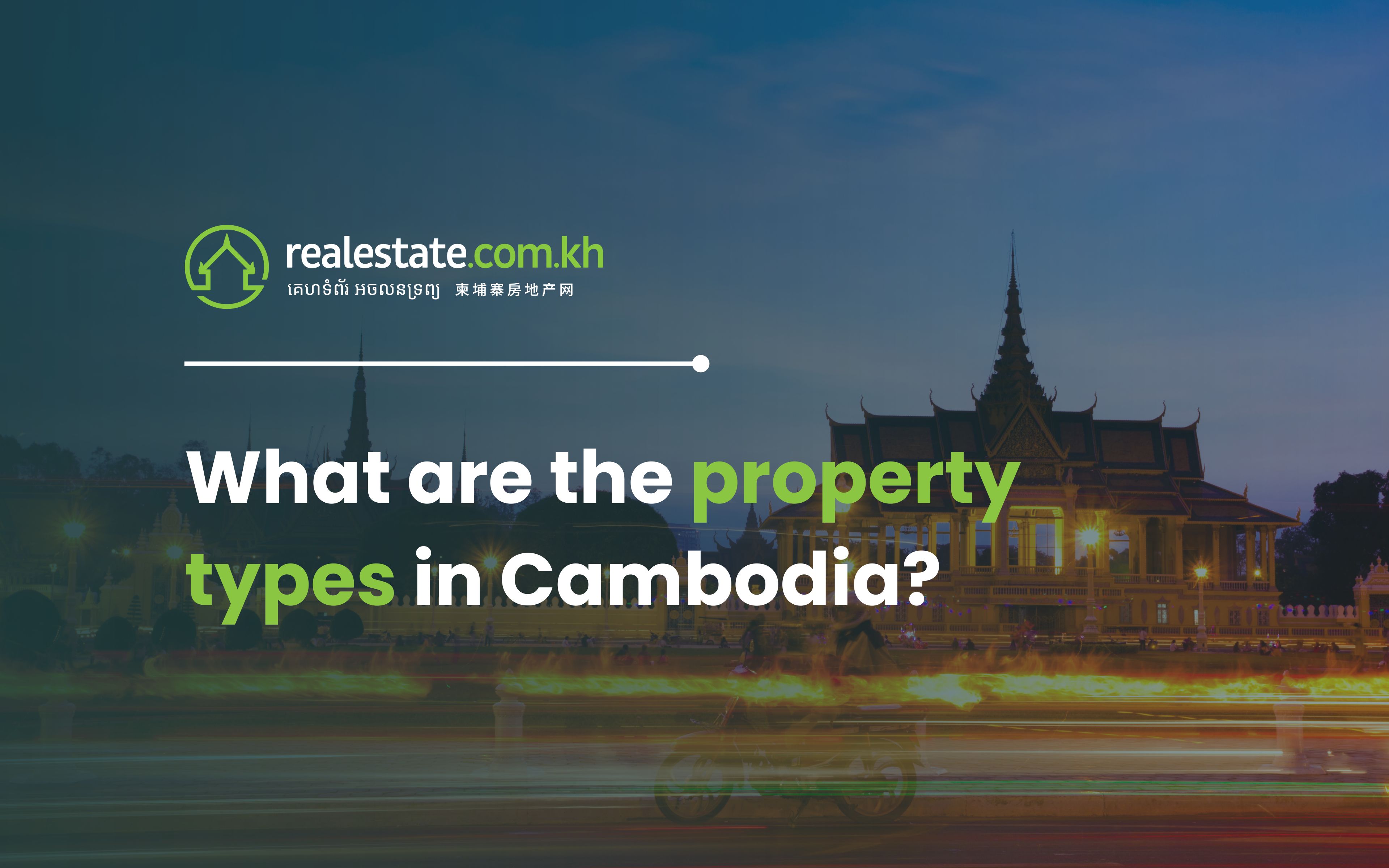
Comments